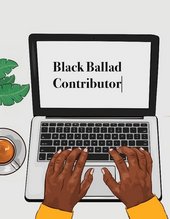Folk music is the genre that seems to belong to the few, as it’s often seen as a niche genre; one that conjures up imagery of banjos, furious fiddle playing, jigs in pubs and the hillbilly trope crossover with country music.
In actuality, folk music often lays the important foundations of a nation and culture’s musical language and we all know, and have interacted with, folksong in our daily lives more than we may recognise.
From nursery rhymes and children’s street songs to other forms such as ballads, sea shanties, courting songs (aka love songs), work songs, prison and protest songs: folk music has permeated the way society voices its lived experiences.
While it could be said to be one of the most non-diverse genres in Britain, historically and present, is this strictly true? Well, yes, and no.
As a Black British musician myself, who fuses the genres of folk, jazz and indie rock amongst others, as well as navigating this often liminal space with my Nigerian heritage and its own influence of folk music on my work, I found myself digging for answers in the wake of 2020 due to the resurgence of the Black Lives Matter movement.
